2024 | Berlinale Talents
Film (Language) as a Favourite Language
Berlinale Talents is inviting everyone to talk. In this interview, programme manager Florian Weghorn and project manager Nikola Joetze present the 2024 programme and discuss the importance of good communication and mutual understanding for successful film collaborations.
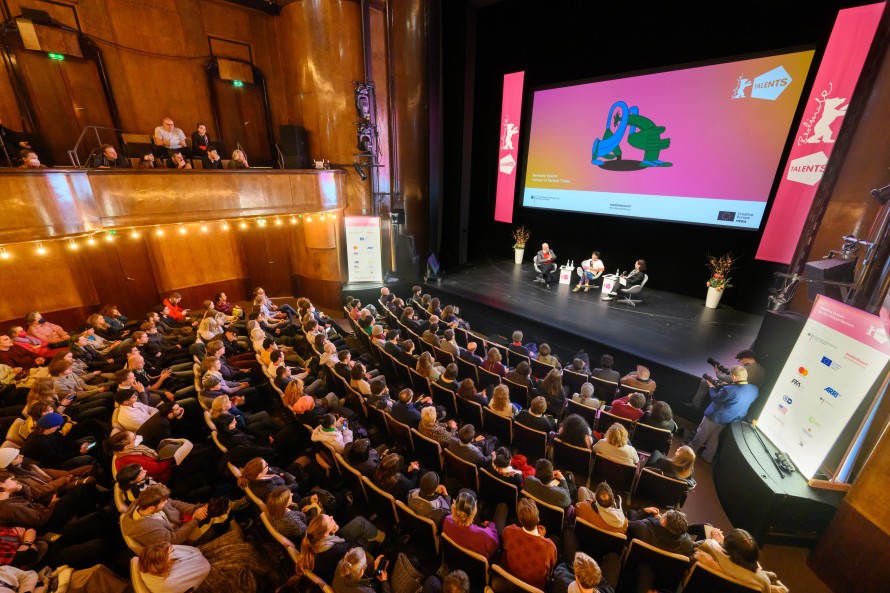
The HAU Hebbel am Ufer in 2023
Your theme this year is “Common Tongues – Speaking out in the Language of Cinema”. What exactly is this shared film language and how is it spoken at Berlinale Talents?
Florian Weghorn: Every year, we look for a topic that affects us at Berlinale Talents and also addresses filmmaking in general. When you bring together more than 200 people from 68 countries, language is of course an integral and central driver of communication. This year’s topic is intended to challenge us and open our eyes to this fact which we might be taking for granted. By addressing the topic, we want to critically question it and develop it further together. When you think of language, you first think of verbal language and communication, the relaying of information and connecting with each other. These are key aspects that define Berlinale Talents in a fundamental way. And film language is one of them: our biggest and everyone’s most favourite language.
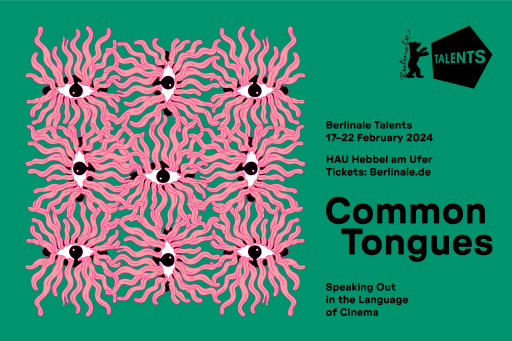
Berlinale Talents Key Visual and theme 2024
Nikola Joetze: We deliberately wanted people to be able to interpret this year’s theme in a multi-layered way. On the one hand, “common” means “shared” and represents community; on the other, it could also imply a “lowest common denominator”. This complexity is also what makes this year’s key visual so exciting: “Is it meant to be coral? Are they tongues? Are they eyes?” It’s not just one straight-forward message but prompts people to discuss its potential meanings. What does “speaking out” mean? It basically means getting back into the conversation, expressing your opinion, discussing things and perhaps taking a new perspective. So this apparently very simple topic suddenly comes to life on so many levels. We hope to have lots of great conversations with the Talents on many different levels and we’re looking forward to all the new things that will emerge from this process.
What role does a common language play in a successful collaboration on a film set and how is Berlinale Talents approaching this topic?
FW: Communication on a film set obviously requires understanding, in the sense of mutual agreement. Otherwise it is impossible to have good working conditions and that will most likely lead to poor results. With regard to this topic we have, for example, a panel discussion in the public programme with the film directors Ira Sachs (Passages, Panorama 2023) and Eliza Hittman (Never Rarely Sometimes Always, Competition 2020). Considering their films and many years of experience, they promise to be very interesting conversation partners. Nowadays, there is a lot of focus on dealing with highly intimate and physical scenes on set. How do you make sure the actors feel comfortable during such scenes? What language do you have to speak? A key aspect of Berlinale Talents is that the guests always connect with the Talents and also with audiences who may not be familiar with the film language used on a set, and that the knowledge in the room multiplies.
NJ: We also have parts of the programme that are designed for the Talents alone and which communicate on very different levels. For example, the Talent Circles, in which filmmaking topics are discussed in smaller groups, the Labs, Stations and even the Talent Tanks, where the Talents are exclusively amongst themselves and the focus is on questions like: Who am I as a filmmaker today? How do I enter this space and how do I fill and shape it? How do I want to meet these other people as a filmmaker in the future?
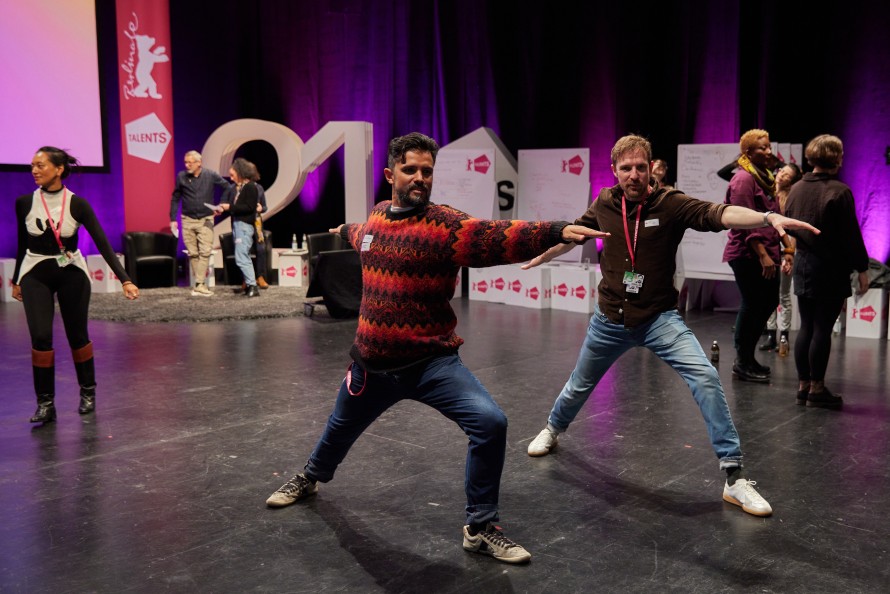
The Talents in action
Finding a common denominator – that raises the question of inclusivity. A common language may contain a lot that is assumed to be self-evident and passed on. How is this issue reflected in your programme and where do you see challenges that still need to be overcome?
FW: That’s a very important point, perhaps even the most important one, when it comes to talking about understanding, communication and the development of language. We have to be aware of the circumstances and the negative and positive forces affecting them. In certain situations, the answer to this issue might be quite simple: whoever is holding the mic can speak and the others have to listen. These are power relations that we often tolerate and accept because they structure our everyday lives, but they should not be exploited. It’s the same in filmmaking. The aspect of what I’m discussing and the topics I’m raising is not only interesting in terms of content, but also in terms of whether I’ve even been invited or perhaps given the permission to speak. We’re delving deeper into this topic by discussing two films from Berlinale Special (The Empty Grave) and the Competition (Dahomey): two documentaries that deal with colonial crimes committed on the African continent. The question is also crucial from the point of view of the perspective of a film: Are we giving a voice to someone new? Or are we listening to people who already have a voice?
NJ: Actually, I’d like there to be something as utopian as a Babel fish that we can put in our ear so we can all speak in our native tongue in which we feel most comfortable, but can also understand everything and be understood. Instead, we all speak in English as the common denominator. That is why, with regard to inclusion, we have three events at this year’s Berlinale Talents which, although being interpreted into English, will have French or Mandarin spoken on stage. From a thematic point of view, this can make us more aware of the act of interpretation itself – whether what we are hearing and saying and what we are taking for granted all mean the same thing in all languages. I’m pretty sure they don’t, and that’s what makes it exciting!
NJ: In addition, in the spirit of communication, we’re exploring how we can, for example, put certain elements from the programme on a mobile phone to make them readable and therefore accessible to other groups of people. And live-streaming online again offers the opportunity to have conversations translated into subtitles in real time, thus giving further access even to people who can’t be here. I think that, considering we have Talents from 68 countries and all sorts of different languages, a Babel fish would absolutely be the best option, but unfortunately we haven’t found such a solution yet!
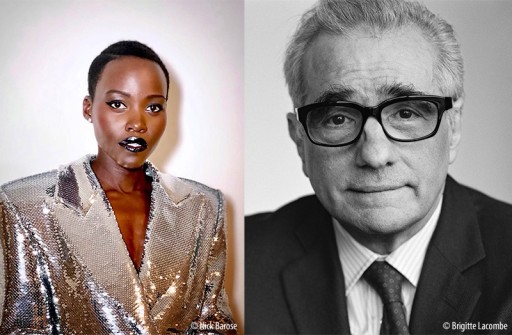
Jury president Lupita Nyong'o and receiver of the Honorary Golden Bear Martin Scorsese will be guests at Berlinale Talents 2024
The video streams and recordings are a useful addition that possibly can help to break down such barriers. Which events are being streamed or shown and what can film fans who won’t make it to Berlin look forward to?
FW: Once again this year, we’ll be streaming the big events with the International Jury and the one with Martin Scorsese, who will be at the Berlinale to receive the Honorary Golden Bear. It’s a fantastic opportunity to bring Scorsese’s incredible work and creativity closer to the Berlin audience and to get into conversation with him. The host for that event is another brilliant filmmaker, Joanna Hogg. She and Martin Scorsese know each other well and she’ll be bringing a very interesting perspective of her own to the conversation.
We would also like to record the event we mentioned above about the culture of remembrance plus what promises to be an intensive discussion with documentary filmmakers from Ukraine and make both of those available online. Events like these throw the focus on something completely different which is our mission: to provide a space for open discourse with the Berlinale’s guests. Especially given the times we’re currently living in, this aspect has become one of central significance for festivals.
Which voices (Talents) are coming to Berlin this year?
NJ: I always have a hard time picking out individuals but we certainly have a lot of outstanding Talents. They include Anna Hints, the director of Smoke, Sauna, Sisterhood, who will be participating as a Talent alongside her editor Tushar Prakash. And Sophie Linnenbaum, the director of The Ordinaries.
FW: The 202 participants have been found among 4,000 applications. Berlinale Talents doesn’t aim to make a selection in the elitist sense of the word. Instead, we assume that all the applicants are already great talents. But we hope that, by bringing many different Talents together, something new, as yet unknown and unexpected will emerge. It’s the exchange of ideas, the community and also the things that can only come about when individual people become connected: new projects, new collaborations, friendships or simply a feeling of belonging.
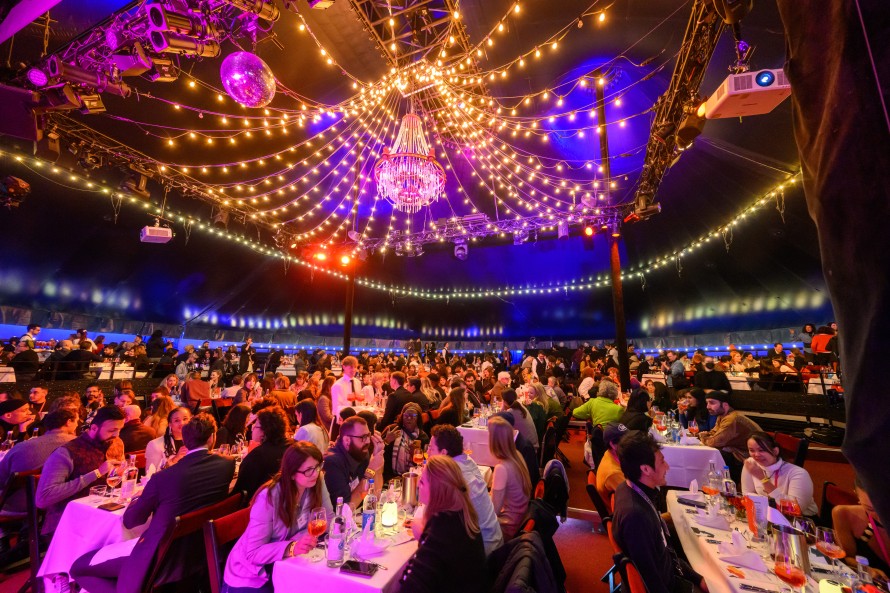
Dine & Shine Dinner for the Talents
117 Talents alumni are represented in the 2024 Berlinale programme with their new films. Will some of them be dropping in with you?
FW: There won’t be a single day without at least five alumni showing up somewhere in our programmes or in the Talent Circles or a workshop. We have a close relationship with the community which extends beyond the festival: many of the studio coordinators who lead our discipline-specific workshops are now also alumni. We’ve become a pretty good network of employers!
NJ: This also demonstrates the strong bond that is created by Berlinale Talents. During these six days, people don’t just get to know each other – an entire sense of community develops and the desire to help and support each other. That also takes place in all the spaces available at Berlinale Talents between the official programme events.
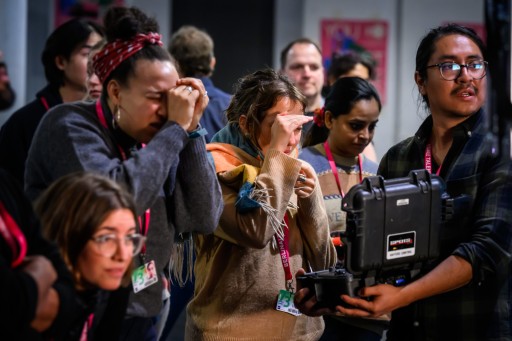
In focus: the camera studio workshop 2023
How are changes in the film industry reflected in your workshops and events? This edition follows a strike by screenwriters and actors in the USA which concerned, among other things, the new influence of AI technologies. Are you taking up this topic? What other changes are being addressed?
FW: We are raising the question of “artistic intelligence”. That means, we’re approaching the new technologies from the perspective of people who are creative themselves and who are now able or obliged to deal with them. This topic might come up for discussion in our workshops on media law, which would again lead us back to the demands from the strikes. But we’re also interested in exploring whether filmmakers have already been working with the principles of AI: combining the thoughts of many people and using them to create new worlds. That’s something that isn’t that far removed from filmmaking, right?
NJ: And, of course, the question of AI is also intriguing on a technical level. How can you use it to develop creative new forms? How can you create new images, quasi in combination with AI – for example in production design or cinematography? I’m looking forward to seeing what ideas and possibilities the Talents will bring with them. In one Talent Circle, for example, we have a specialist from Arte who is exploring how AI can be used in current visual language.
FW: However, there are other challenges in this world that are affecting our Talents just as much, if not even more so. We focus the concern that the programme, in a curatorial sense, has for its participants, the audience and ourselves, more on the personal, the human and on being seen rather than on overly technical questions.
Last year at his talk, your guest Todd Field and the cast and crew of his film TÁR (Cate Blanchett, Nina Hoss, Sophie Kauer and Hildur Guðnadóttir), screened the short film The Fundraiser which complemented his feature film. He remarked on the special atmosphere at the event and hasn’t shown the short to any other audience since. What was that moment like for you and what makes Berlinale Talents a place for such special moments?
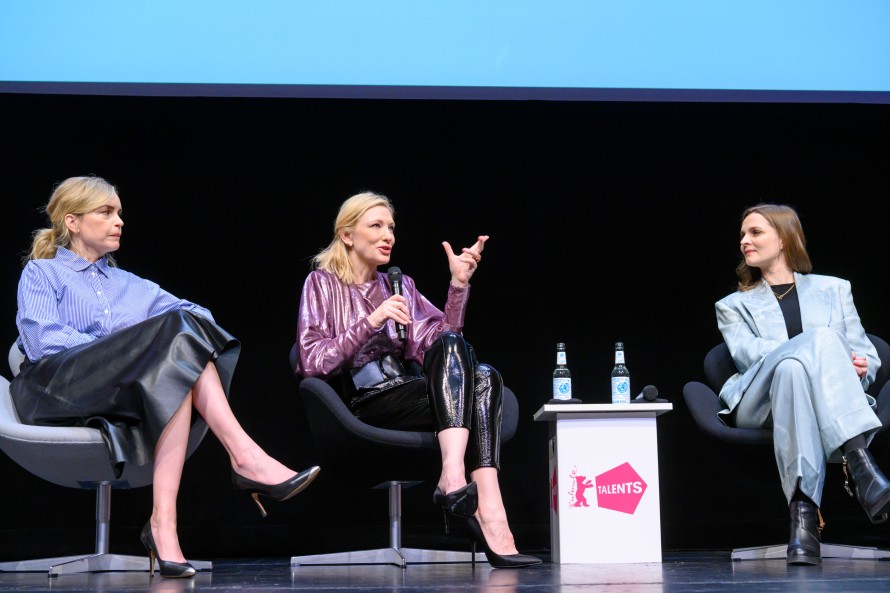
Nina Hoss, Cate Blanchett and Hildur Guðnadóttir
FW: Regardless of how famous they are, we always tell our guests: “You can expect a ‘meeting among colleagues’ with us and you’ll get a ‘meeting with cinema lovers’ with the audience on top of that. We don’t expect you to deliver a master class or a lecture and you’re welcome to come up with a question instead of an answer.” As soon as the guests arrive on stage, they can sense this special relationship. And then something completely magical happens. We all celebrate cinema together and/or have a debate. It’s not always simply just fun, but it is always an enriching experience. And I think it was the same with TÁR. The cast and crew realised that they could offer something here which they might not have done elsewhere. Cate Blanchett made it very clear: This is just between us!
We always maintain that we’re actually putting on more of a theatrical show than a film. We create spaces and we’ve given a lot of thought to their parameters. As a result, we’re relatively free inside this framework for whatever then develops. The TEDDY Talents Talks are a very good example of this since they turn this idea into an experience in itself. They provide visionaries of queer cinema with a space where they can juxtapose their views and ideas and observe how they spread out into the room. How the audience and speakers then react is new and a unique experience every time.